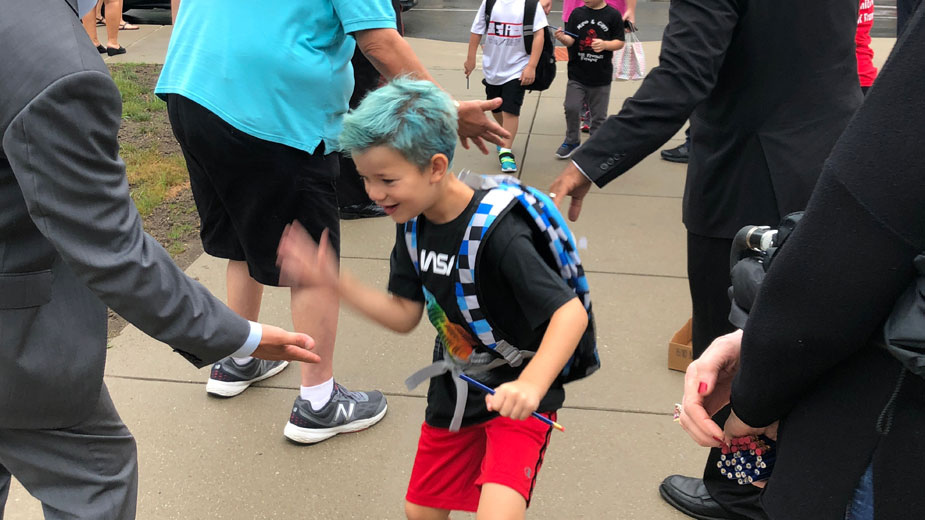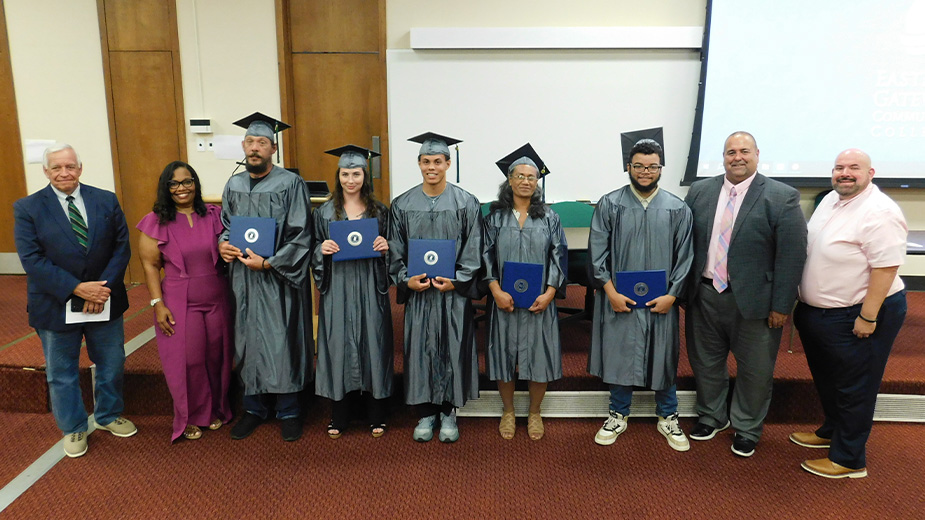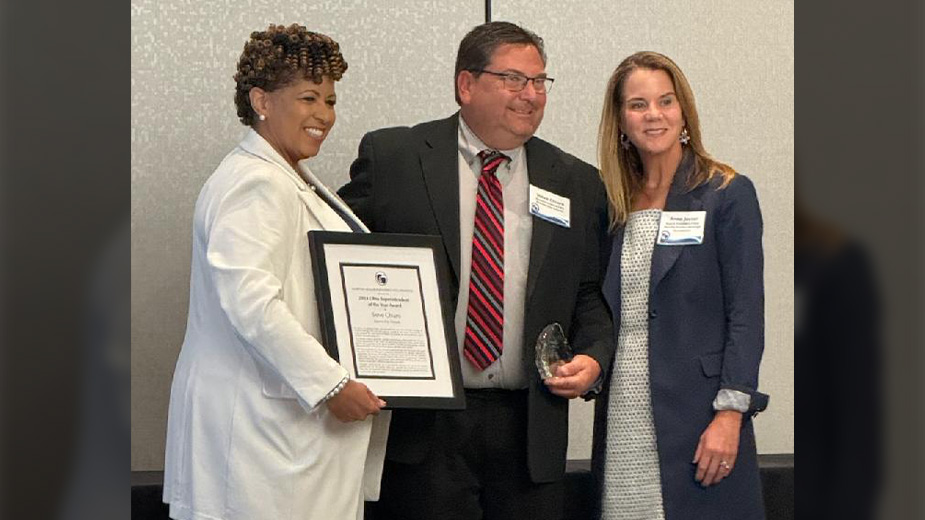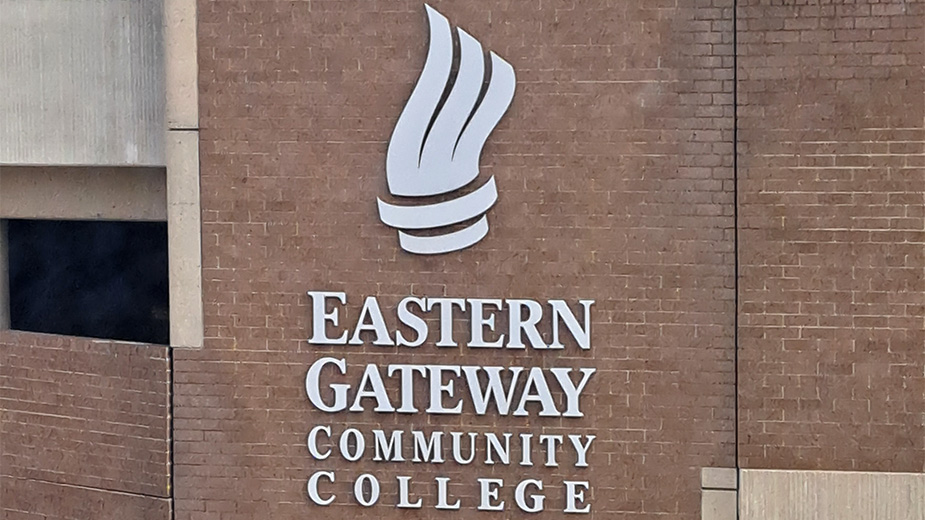Warren Schools Mold Tomorrow’s Workforce
WARREN, Ohio — All who enter the Warren City Schools administration building are greeted by a giant banner hanging from a balcony. “The Class of 2030,” it reads, joined by pictures of the kindergarten class of the school district. Some are reading; some are painting; some are sitting at their desks with their hands raised.
Over their next 12 years in the district, these students will have access to programs aimed not just at ensuring they perform well on tests, but are well prepared for the world beyond.
“The whole concept of a school needs to be the centerpiece for kids and community. We need to provide everything we can,” says superintendent Steve Chiaro. “We want to wrap around our kids and ensure they get the best education possible and ensure they have a foundation for success – whatever that is for them.”
Whatever’s best may be arts integration, made possible through membership in Any Given Child program of the Kennedy Center. It might be social and emotional learning, which teaches students how to de-escalate problems and work alongside each other. It might be help with reading at grade level, one of the largest indicators of student success. It could even be health care, which can help keep students in school and at full capacity for learning.
Under Chiaro’s leadership, entering his sixth year as superintendent, these programs that have been brought in or expanded. All of it’s been done with the intent to make Warren a better place by connecting students to their community and making sure they’re job-ready when they graduate.
One of the biggest resources available to students, he says, is social and emotional learning, or SEL. A decade ago, Warren City Schools was one of the first two districts in the country to receive federal grants to launch an SEL education program, which comprises what are referred to as the four R’s: reading, writing, respect and resolution. Initially just used in lower grades, last year a high school course was created and the district is working on adding a course for grades six, seven and eight that will bring 25 minutes of such education to students daily.
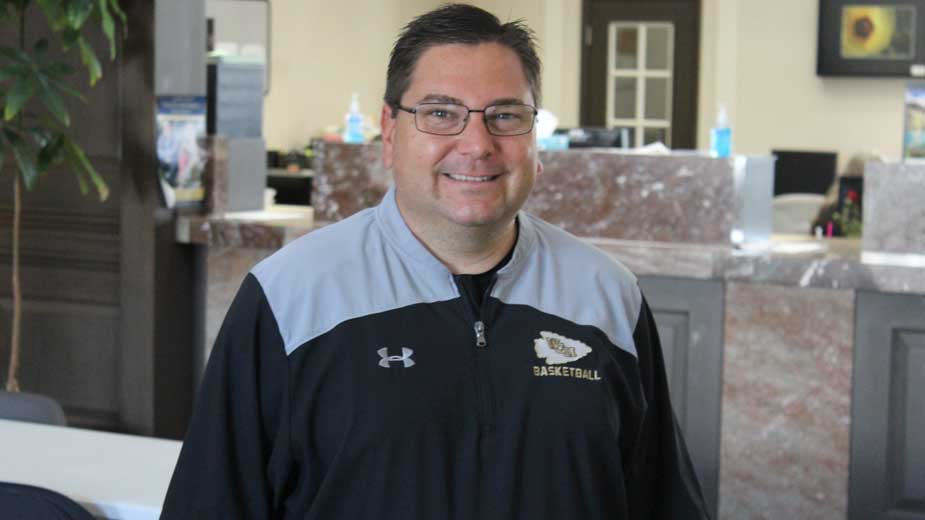
“We have seen a steady reduction in our discipline reactions and referrals in our district as a result of our work with social and emotional learning,” Chiaro reports. “We’re trying to de-escalate children who might be having an issue or problem. We’re trying to respond to problems instead of react.”
Nationally, he says, test scores increase an average of 11% when students are involved in an SEL curriculum. Similarly, the United Way of Trumbull County Reading Great by 8 program is linked to improved reading comprehension and literacy, says the agency executive director, Ginny Pasha. While the United Way chapter doesn’t have statistics for specific school districts, she says the program, used in all Trumbull County school districts, has led to an average 80% increase in comprehension and literacy.
“The Annie E. Casey Foundation reported that if a child isn’t at grade level by grade three, there’s 16% chance he won’t graduate from high school. When you talk about economic development, that’s the stat right there,” she continues. “They have to have a high school credential to be a viable employee. In that alone, the Reading Great by 8 program has an impact on economic development.”
The Trumbull United Way has also launched pantries in Warren schools, beginning with the Raider Pantry at Warren G. Harding High School in 2017 and expanding to three of four elementary schools last school year. Work is underway to open the fourth in McGuffey preK-8 this coming school year. Beyond just food, the pantries offer students personal-care items and clothing.
“There were children at the high school level reporting they didn’t have food on weekends, they were responsible for younger siblings and that led to the Raider Pantry,” Pasha says, noting that 68% of families in Warren are considered low-income working poor. “What a lot of people don’t realize is that for those who are on [Supplemental Nutrition Assistance Program], it doesn’t cover [personal-care] items. Toothbrushes, toothpaste, soap, shampoo, toilet paper – those things aren’t covered.”
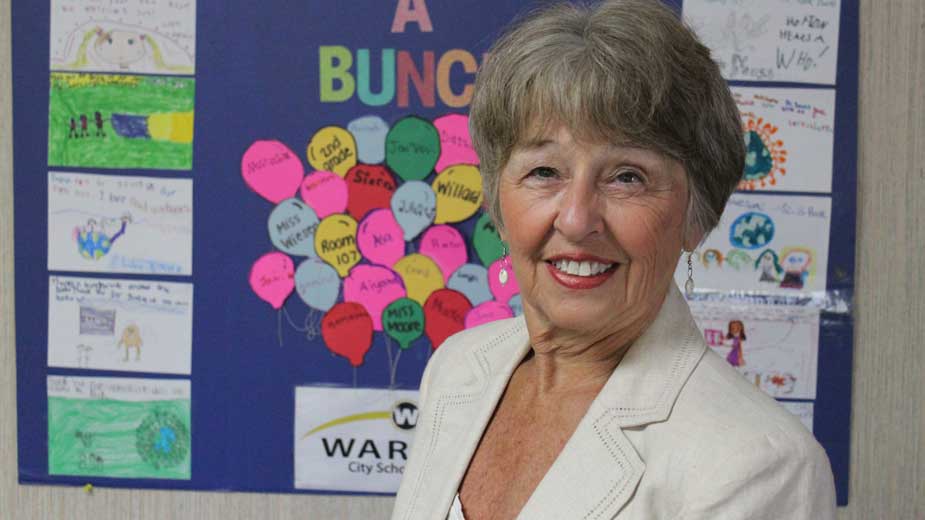
While the pantry program isn’t directly linked to educational support, Pasha says that such programs are crucial to student success and helping them graduate with the skills needed to thrive as adults.
“You need to make sure that these children have all the physical, social and academic support they need to be successful or otherwise there is no next step for them,” she says.
In a similar vein, access to health care isn’t an academic program but a factor that nonetheless contributes to generating successful students. This fall, Warren City Schools will be part of a pilot program by Akron Children’s Hospital to house nurse practitioners who can provide care to students. While school nurses are already in place, the pilot program will enable students who lack a primary-care doctor to get physicals and in-person checkups.
“If children aren’t healthy, they’re not able to learn,” says Michelle Wilmoth, director of school-health service at Akron Children’s. “Warren City Schools, like every other district, is trying to support students and give them the resources to help them reach their full academic potential.”
The program also allows for telehealth visits with off-site doctors and for the district nurse practitioner, Camilla Giallourakis, to write prescriptions.
“The whole goal is to keep the child in school,” she says. “If it’s an earache, they may be able to stay in school after I take a look, write a prescription and get that to the family, who picks it up and has it ready when [the student] is done with school.”
With continuous health-care access while they’re in elementary school, Giallourakis continues, students and their families can keep an eye on medical issues when they begin to arise rather than waiting until they become problems.
“We can give them immunizations, ask about family history, monitor changes. Then as they start to grow, you can watch for depression and anxiety and substance abuse,” she says. “All of these things come out in preventative visits and if they go multiple years without being seen, it can lead to chronic illness.”
Now heading into its second year at Warren schools, the Kennedy Center Any Given Child program is working to provide students with arts education in and out of school. Initiative members, of which there are 25 including Warren, have access to the Kennedy Center’s institutional knowledge of how to integrate arts into a wide spectrum of courses. Twice last school year, a Kennedy Center instructor visited the school to talk about such methods with teachers.
“These are people who would get paid $5,000 a day to come,” says Becky Keck, executive director of Students Motivated by the Arts. “Kennedy Center ships us the notebooks and they teach the arts integration curriculum to Warren City School teachers, community artists and our other partner schools. These are people at the national level, at the very top for this.”
Students Motivated by the Arts, or Smarts, serves as the supporting arts organization for Any Given Child, working alongside the school district and city to coordinate community partners such as Trumbull Art Gallery and the Trumbull County Historical Society. In one class last year, history society director Meghan Reed taught an elementary class about museum trips.
“She taught them about museum etiquette, their collections and how they operate. It teaches them that it’s not just a building, that there’s protocol,” Keck says. “It was a way to get them interested in what they were going to see before they even went.”
While arts education has long seen its funding cut nationwide, it plays an important part in teaching what
Keck refers to as “the whole child,” and focusing on more than just test scores.
“We talk about teaching the whole child. There’s a lot of research that shows kids and those in urban settings learn better through the arts rather than through traditional ways,” she says.
To ensure student success at all levels, superintendent Chiaro says, partnerships such as these are crucial to Warren City Schools. It isn’t enough for districts to just keep students in a classroom eight hours a day from pre-K through their senior years.
“Warren City Schools can’t do this on their own. If we were going to educate children like we did 20 years ago, sure,” Chiaro says. “We’re rising to the challenge of creating students who are future-ready. We’re creating students who have the skills to collaborate and work together. … Rather than just giving them math, English, science, social studies and handing them a diploma, it opens doors to more opportunities.”
Pictured above: On the first day of the school year, United Way of Trumbull County supporters welcome students back to class, which not only gets them excited to learn, says Executive Director Ginny Pasha, but builds bonds between students and community.
Copyright 2024 The Business Journal, Youngstown, Ohio.
